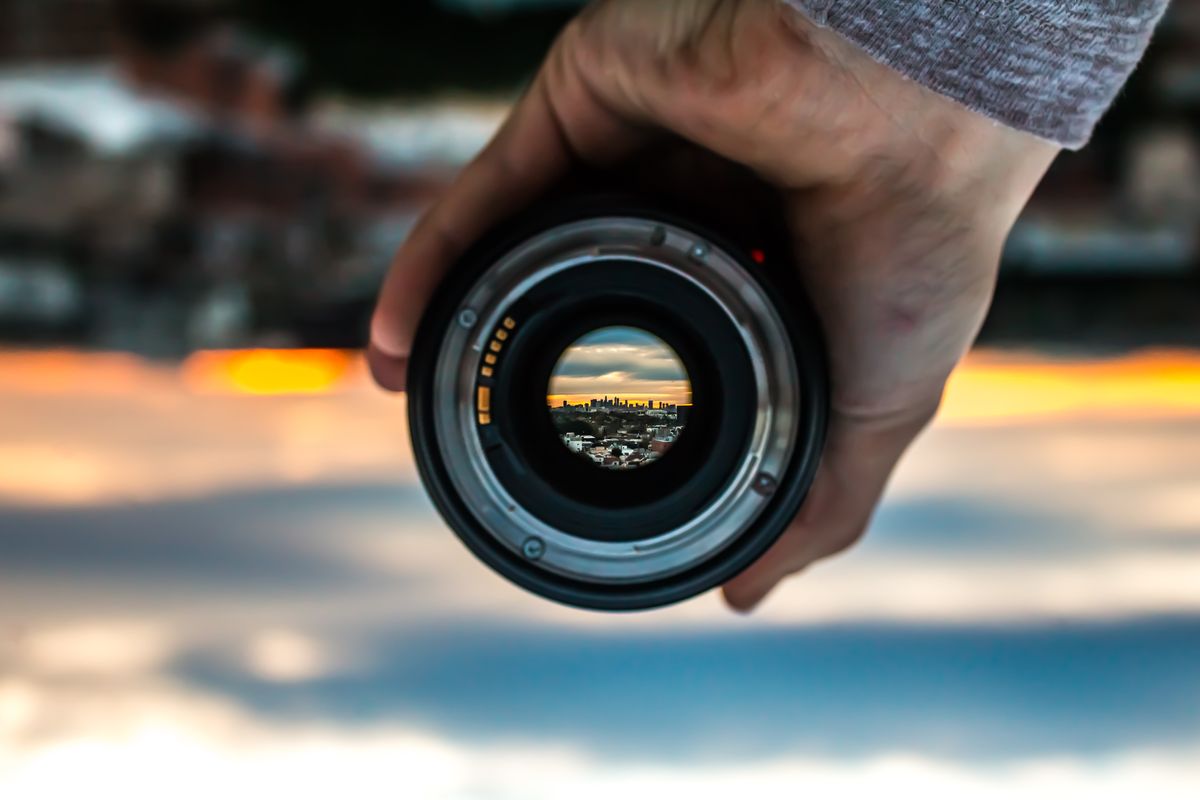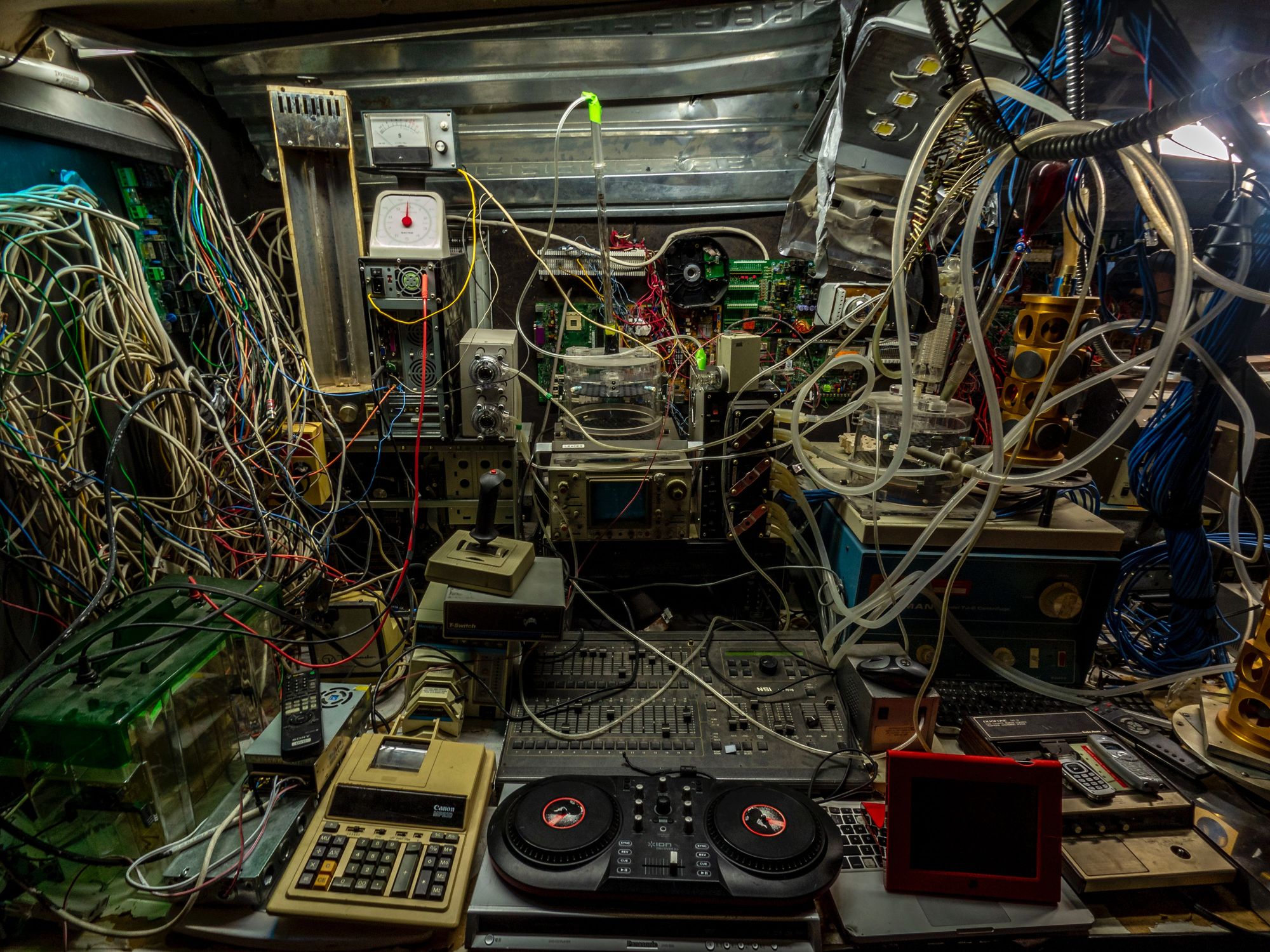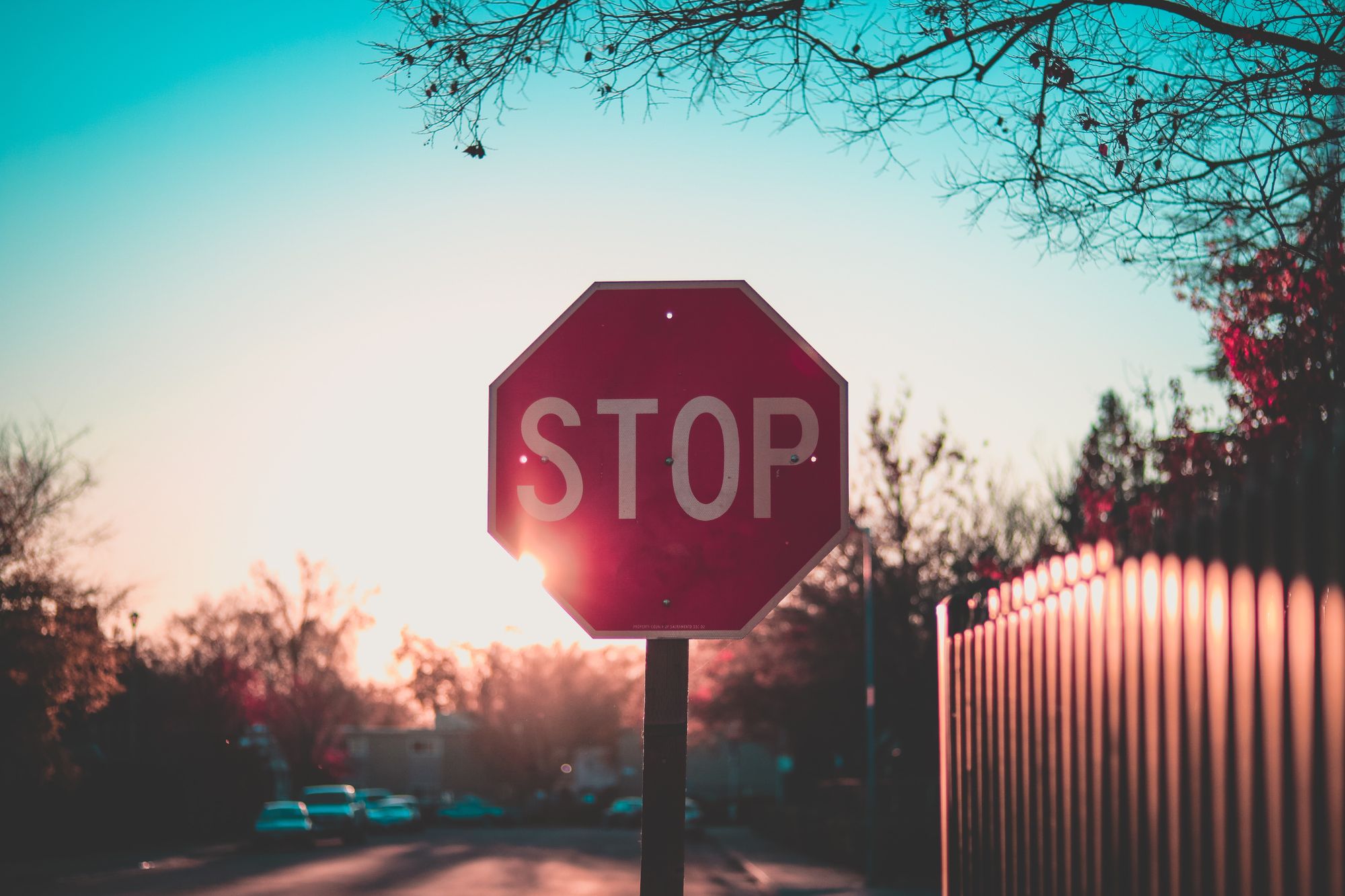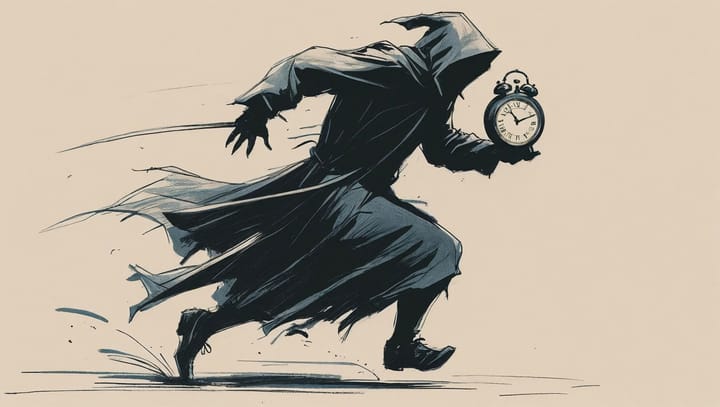In a World Full Of Distractions, How Do You Get Your Focus Back?
Sometimes you need to do an inventory of the many things vying for your attention and make sure you give it to the ones that actually matter.

One of the emails I hope never to send you is my Unsubscribe Email.
Anytime someone unsubscribes from the Every Intention newsletter, I send a message to ask why and if there is something they were hoping for but not getting. My goal is to continually learn and improve and feedback is always welcome.
Most of the time I don’t get a response, which is to be expected. Occasionally, though, someone decides to reply. I got one such reply recently that got me thinking about reducing distractions.
Anitha Krishnan described herself as a productivity junkie, who was always
“looking for that magic pill to swallow or that special formula to implement that would see [her] fare better in the two areas of focus in [her] life: writing (fiction) and family”.
She shared,
“While I love devouring information, attempting to put them into practice is a completely different ball game altogether. When things got hard for me, my first instinct was to turn for answers to books and blog posts, which was detrimental to doing the work of looking inwards and understanding and acknowledging my own patterns and seeing how I was setting myself up for success (or failure).”
She decided she needed to simplify and unsubscribed from all but three newsletters that were directly related to her writing, as well as cut out personal projects that weren’t directly aligned with her two areas of focus.
As a result of some intentional decisions to cut distractions and focus on what’s truly important to her, Anitha said:
“All this has done wonders for my productivity and happiness levels, and life has become simple and truly a joy.”
Wow. How awesome is that?
I will add she was lovely enough to also say:
“In response to your question, What were you hoping for but not getting? I'd say that I've already got all that I needed and so much more - and I thank you for that - and so there was no reason for me to stay anymore.”
I’ve never had such a nice breakup email in my life!
Anitha’s email got me thinking about how many distractions we wade through each day, both intentionally and unintentionally. There are so many inputs between:
- Social media platforms
- Streaming services
- Newsletter subscriptions
- News and gossip websites
- Forums
- Podcasts
- RSS feeds
- Cable TV
- Chat apps
- Random stuff your partner, family, or friends share
- … it’s endless.
The access we have to information is incredible, with almost anything you could ask for accessible from the tiny computer we keep in our pockets.
And yet…
It often feels overwhelming. There is so much to consume and so much of it is frankly trash.
It’s easy to get bogged down in the litany of opinions, ideas and happenings of the world without:
- Noticing the mental clutter it produces; and
- Taking the time to sort out the things that give value versus the things that harm (or at least take up space).
Let’s dig into why this happens and what you can do to simplify and reduce distractions so you can focus on what matters most to you.

Why is it so easy to get distracted?
Quick fixes
Anitha talked about, “looking for that magic pill to swallow or that special formula to implement” that would help her do what she wanted to do. In the world of productivity, the promise of new software or a better system to solve the feeling of overwhelm and exhaustion is common. There is this feeling that if you could only find the right system or software, you will finally feel like everything is under control.
The truth is there is no quick fix. The behaviour changes required to reduce overwhelm and exhaustion are complex. You have to untangle years and years of cultural messaging and engrained thinking around things like:
- What it means to be successful
- People pleasing
- Deferring life
- Exclusive self-reliance
- Hustle culture
- ... and more...
The work of being intentional and thoughtful with your time and energy is hard and ongoing. While systems and processes support the required changes to calm your chaos, they are merely tools.
Procrastination
Obsessively researching all the ways you can organize your to-do list or trying out project management software makes you feel like you are making progress. But these activities are usually procrastination techniques.
Anitha framed this search as being, “detrimental to doing the work of looking inwards and understanding and acknowledging my own patterns and seeing how I was setting myself up for success (or failure).”
Finding a tool or process might help in the short term. But unless you do the work of understanding how things got so overwhelming in the first place, they won’t hold up. They sometimes even contribute to the noise and distraction.
They are ways of distracting yourself from the reason why things feel out of control in the first place. It’s jumping to solutions before you have defined the problem.
Fear of missing out
Despite the overwhelm, there is an underlying fear of missing out on… something:
The latest breaking news/gossip/hot takes/scandal/recipe/weird outfit/funny video. There is always something commanding the attention of the masses.
Now, don’t get me wrong, there is nothing wrong with wanting to connect and be informed. There is nothing wrong with wanting to enjoy a little pop culture and admire celebrities. There is nothing wrong with expanding your knowledge and deep-diving into something random.
But it’s worth asking yourself:
- Why does this matter to me?
- What am I getting out of it?
- What could I give my attention to instead?
There is an opportunity cost to everything you give your time and attention to. Are you giving them to the right things?
It’s easier to be passive
It takes effort to take inventory of all the different things you consume and decide what needs to go.
It takes discipline to limit the time you spend on the various picture boxes that have so many shiny things for you to see and hear.
It takes clarity to decide what’s important and worth your attention and what’s distracting you from your true priorities, interests, and goals.
And it’s way, way, waaaaaay, easier to be passive. To scroll through Twitter for hours. To let the next Netflix episode start. To let your newsletter subscriptions pile up to the point where you will never be able to read them all.
So then… what can you do?
How to reduce distractions and get your focus back
1. Identify what’s truly important to you
I have referenced this many times but I like to come back to this passage in Alice in Wonderland:
“Alice: Would you tell me, please, which way I ought to go from here?
The Cheshire Cat: That depends a good deal on where you want to get to.
Alice: I don't much care where.
The Cheshire Cat: Then it doesn't much matter which way you go.”
In this context, if you don’t know what’s important to you, it doesn’t matter what you give your time and attention to.
In order to quiet, reduce or eliminate the things that are distractions, you have to know what you are being distracted FROM.
Anitha identified her fiction writing and her family as her areas of focus. Everything else was a distraction keeping her from what she deemed most important.
If you had to choose 2 or 3 things to focus on, what would they be?
When you know the answer, you can then ask: What am I consuming that distracts from those things?
2. Think about how what you consume makes you feel
We often don’t stop to think about how all the information we consume makes us feel. The feelings of:
- Not measuring up
- Impostor syndrome
- Rage and helplessness
- Envy and jealousy
- Frustration
It’s easy to doom scroll and feel like the world is full of terrible people, or watch the endless news coverage of this week's disaster and think that the world has never been in a worse state. But many of the places you consume content are echo chambers for certain viewpoints and messages.
Reminder: Just because you read it on the internet does not make it true!
Note, I don’t believe you should only read/watch/hear things that make you feel good. Negative emotions are powerful and tell us about ourselves. They also inspire and spur action. But you need to be conscious of the value you are getting and your ability to process those negative emotions in healthy ways.
For example, my husband and I don’t often watch dramas. Anything that will give us the feel-bads or increases anxiety usually gets cut from our Friday night viewing options. Or, if there is a show we decide we just can’t miss, we will only watch one episode at a time and follow it up with something lighter.
3. Unsubscribe/unfollow/set limits
For all the inputs I listed earlier in the article:
- What newsletters can you unsubscribe from that no longer interest you? (I hope not this one!)
- Who can you unfollow on your social media that makes you roll your eyes or feel frustrated?
- Can you set limits on how many episodes of a show you watch in a sitting?
- Can you cancel the streaming service you watch the least?
- Can you remove the bookmarks to websites or forums to make you less likely to visit them?
Inspired by Anitha, I took a look through the list of newsletters I subscribe to and considered each one. I have a mix of writing and productivity focussed ones, as well as a couple that are more random topics published by exceptional writers. I unsubscribed from the ones that I didn’t look forward to reading.

Some caveats
➡️ You will have to do this regularly
There will be cycles of researching, exploring and adding things. That’s normal and good. Expand your mind and discover new things! But also remember that you can quiet the noise when you start to feel overwhelmed. Also, you can always come back to something after you cut it (but you likely won’t even miss it!).
➡️ Sometimes distractions are nice and necessary
Life can be… a lot. Sometimes all you want to do is binge-watch a show or mindlessly read the internet, or play video games for hours (I ❤️ video games). That’s ok! The key is to know you’re distracting yourself, do it for a bit and enjoy the break, and then get back to the work of dealing with what you have to deal with.
➡️ Reducing distractions does not mean cutting out or avoiding content you disagree with
There is incredible value in hearing or reading about the happenings in the world and opinions and ideas that are outside your experience or personal philosophy. These things make us more thoughtful, understanding humans. What you want is to be intentional about how much and how often you consume these things and pay attention to where they fit in your life at this time.
There is so much out there vying for your attention and contributing to your mental clutter. Think about what you want to focus on and evaluate what fits right now. Clean house! There are things that matter and things that don’t and SO MUCH of what’s out there just doesn’t matter. As Anitha experienced, unsubscribing, unfollowing, reducing and cutting can do wonders for your productivity and happiness levels by giving you more mental space for what DOES matter.
Special thanks to Anitha Krishnan for sending such a thoughtful email and giving me permission to share it.
If you need some help narrowing down what to focus on and where there is an opportunity to reduce distractions, book a chat with me!
Share
Ashley Janssen

Productivity consultant, writer, speaker, serial entrepreneur, chaos calmer, introvert, cat-lady. Lover of books, fitness, old fashioned’s, basketball, and video games.
Follow me on
Twitter
or
LinkedIn.
Hire me for
1 on 1 productivity consulting
or
speaking.
Related articles

Time Is Not The Thief

7 Questions To Help You Prepare For A Big Change


Comments ()